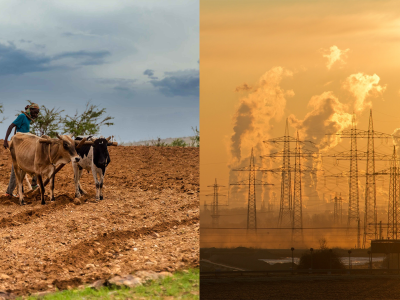
Hopes for a global approach to Tax Avoidance in 2017
What's on this page
The third and last contribution to our series of blogs ahead of the 2017 Challenges Paper is by Uzo Madu, founder of What’s in it for Africa, an online platform dedicated to EU-Africa current affairs. By looking at the steps taken by the EU and by African countries in 2016 to face tax avoidance, Uzo Madu expresses her visions and hopes for a more global approach to the issue in 2017. The year 2016 was characterised by calls for financial transparency, following an unprecedented disclosure of 11.5 million files revealing what many of us already knew: the global rich are using a myriad of illicit aspects of offshore finance to exploit secretive tax regimes. And the real losers are, unfortunately, those at the very bottom of this already top-heavy food chain: the poor.
Uncovering the truth about tax avoidance
Corporate tax avoidance is Africa’s biggest financial drain, and by in large because of this, the inverse is true: combating it presents some of the biggest opportunities for financing Africa’s economic development. For example, Africa is estimated to need between $614-$613 bn per year to implement the Sustainable Development Goals (SDGs). Moreover, recent pilot projects to crackdown on Africa's tax avoidance have already netted $260m (£204m), with more than $100m of that generated through tax audits in just one country, Zimbabwe. Africa is not only home to the world’s poorest countries, but also 30% of its financial assets are in tax havens. It is here where the most significant impacts of tax avoidance can be felt. Following a Summit with EU leaders in 2015, the President of Senegal, Mr. Macky Sall, publically called for multinationals to pay their fair share of taxes.The EU can only do so much
Western Europe represents the majority of FDI in Africa, hence it is far more than simply noteworthy that in 2016 the EU ushered in a raft of policy measures to address tax avoidance, primarily within the EU, but also globally. The measures most worth mentioning in the EU-Africa context includes rules requiring companies, operating in the EU with global revenues exceeding EUR 750 million a year, to disclose the total taxes paid outside the EU to the tax authorities of the EU country where the parent company is tax resident. Whilst this goes some way in opening up the plethora of secrecy around international tax liabilities, Thabo Mbeki, Chair of the UN Panel for Illicit Financial Flows, has argued that it does not go far enough, precisely because:“aggregated accounts have been used to hide the profits and not pay the taxes in the countries in which these companies are operating in the way that they should”.He calls for companies to report country-by-country how much tax is being paid. Another global measure instituted by the EU is the “naming and shaming” approach. It is the creation of a public EU list of non-EU tax jurisdictions which do not conform to international tax good governance standards. The real weight of the measure comes with the publicity of the list and the fact that EU member states will be encouraged to apply counter-measures against those countries on the list to incentivise improved tax governance, such as the refusal of normal tax exemptions, or deductions for payments made to companies in the listed countries. My concern here is that the “stick approach” does not quite work for a continent in which only 3 of its 54 countries have the necessary institutional expertise to deal with the most common forms of tax avoidance. With these rules in mind, we should remember that even the EU’s more global measures are pointedly aimed at ensuring that EU tax authorities are the ultimate beneficiary, understandably so. These measures, which will come into play in 2017, are all squarely aimed at ensuring that EU tax authorities can collect revenues owed to them and, in fact, the EU only has jurisdiction to act within its legal limits, which is across the EU’s Member States. Therefore, EU rules can only act as a magnifying glass, under which the tangled international web of financial transactions can be viewed.


